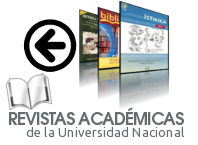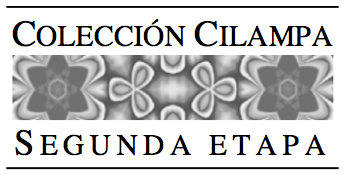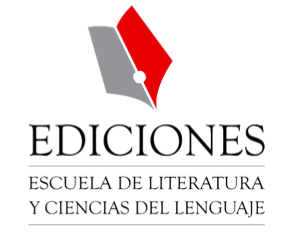Lexical Errors in EFL Students’ Written Production
DOI:
https://doi.org/10.15359/rl.2-68.7Keywords:
EFL, lexical errors, vocabulary learning, lexical instructionAbstract
This research describes and analyzes common vocabulary errors found in the written production of English as a Foreign Language (EFL) students. Based on the lexical errors identified, the analysis of the data was carried out by adapting James’ lexical error taxonomy and included the written production of 56 students from the Universidad Nacional (Costa Rica). It can be concluded that the participants had more lexical errors in semantics and less at the level of discourse. Recommendations on teaching methodologies to correct lexical errors related issues are included.
References
Arabski, Janusz and Adam Wojtaszek, eds. Aspects of Culture in Second Language Acquisition and Foreign Language Learning. London: Springer-Verlag/Berlin: Heidelberg, 2011. DOI: https://doi.org/10.1007/978-3-642-20201-8.
Berardo, Kate and Darla Deardorff. Building Cultural Competence: Innovative Activities and Models. Sterling, VA: Stylus Publishing, 2012.
Fox, William and Mohamed Saheed Bayat. A Guide to Managing Research. Cape Town: Juta & Co., 2007.
Hadley, Alice Omaggio. Teaching Language in Context. Boston. Heinle & Heinle, 2000.
Hajrulla, Veneranda. “Bringing Cultural Content and Authentic Materials to Enhance Problem-Based Learning in EFL Classes,” Lingua Mobilis 5, 38 (2012): 95-108.
Kilickaya, Ferit, “Authentic Material and Cultural Content in EFL Classrooms,” The Internet TSL Journal 10, 7 (2004): 1-5.
Littlewood, William T. “Literature in the School Foreign Language Course,” Modern Languages 56, 3 (1975): 127-131.
Pardede, Parlindungan, “Using Short Stories to Teach Language Skills,” Journal of English Teaching 1, 1 (2011): 14-27. DOI: https://doi.org/10.33541/jet.v1i1.49.
Queensland Studies Authority G. “English: Literary and Non-Literary Text Types Scope and Sequence,” Queensland, Australia: Queensland Government, 2007. StudyLib.net, June 13th, 2019, <https://www.qcaa.qld.edu.au/downloads/p_10/qcar_ss_english_ literary.pdf>.
Safitri, Loli. “The Use of Authentic Materials in the EFL/ESL Classroom,” Journal of English Education 3, 1 (2017): 23-26.
Salazar Herrera, Carlos. Cuentos de Angustias y Paisajes. San José: Editorial El Cuervo, 1947.
Salazar Herrera, Carlos. Costa Rican Short Stories of Anguish and Landscapes. María Luz Méndez Salazar, transl. Heredia, C.R.: Editorial Universidad Nacional, 2016.
Stern, Anita. World Folktales: An Anthology of Multicultural Folk Literature. Lincolnwood, IL: National Textbook Co., 1994.
Downloads
Published
How to Cite
Issue
Section
License
Principios básicos:
a) Los autores conservarán los derechos de propiedad intelectual de sus aportes o artículos;
b) Cada autor deberá indicar expresamente que ese artículo lo entrega, en calidad de exclusividad, a la revista LETRAS; y
c) La revista Letras se reservará el derecho de autorizar para fines académicos no lucrativos la reproducción y uso de ese material por parte de terceros, siempre que éstos indiquen expresamente la procedencia del artículo. Todo ello se postula en concordancia con la normativa de "Creative Commons Atribution License", recomendada.

This work is licensed under a Creative Commons Attribution-NonCommercial-NoDerivs 3.0 Costa Rica License.















